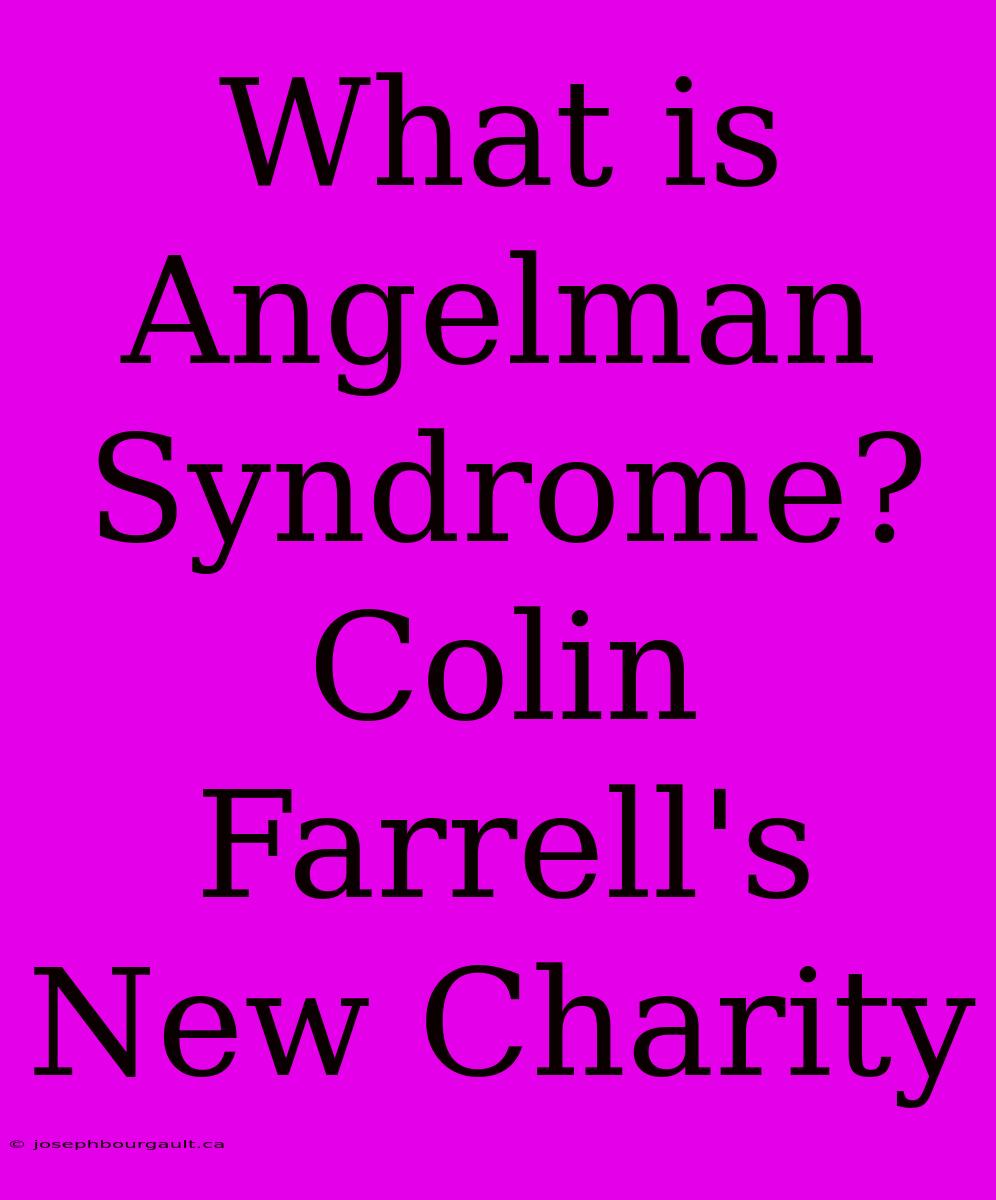What is Angelman Syndrome? Colin Farrell's New Charity Sheds Light on Rare Genetic Disorder
Angelman syndrome (AS) is a rare neuro-genetic disorder that affects approximately 1 in 12,000 to 20,000 children worldwide. It is characterized by a unique set of symptoms including developmental delays, intellectual disability, speech impairment, seizures, and a distinctive happy demeanor, which has earned it the nickname "Happy Puppet Syndrome."
What Causes Angelman Syndrome?
AS is typically caused by a deletion or disruption of the UBE3A gene on chromosome 15. This gene plays a vital role in brain development and function. While most cases are caused by a spontaneous genetic mutation, in some instances, AS can be inherited from a parent.
The Impact of Angelman Syndrome
Individuals with AS face a wide range of challenges. While their physical development is typically normal, their cognitive development is significantly impacted. They often exhibit difficulties with communication, motor skills, and learning. Additionally, they may experience sleep disturbances, attention deficit hyperactivity disorder (ADHD), and gastrointestinal issues.
Colin Farrell's Dedication to Angelman Syndrome
Recently, actor Colin Farrell has become a vocal advocate for individuals with AS. He has a son, Henry, who was diagnosed with the condition in 2003. Farrell's commitment to raising awareness and supporting research for AS is commendable. He has publicly spoken about his experiences, highlighting the challenges and joys of raising a child with AS, and he has actively participated in fundraising efforts.
Hope for the Future
While there is no cure for AS, ongoing research holds promise for improved treatments and therapies. Currently, therapies focus on maximizing potential and improving quality of life. This includes interventions like physical therapy, occupational therapy, speech therapy, and behavioral therapies.
Support and Resources
For families affected by AS, there are numerous support groups and organizations dedicated to providing resources, information, and advocacy. The Angelman Syndrome Foundation is a leading organization that works to advance research, improve care, and connect families through support networks.
Conclusion
Angelman syndrome is a complex and challenging condition, but it is important to remember that individuals with AS are capable of leading fulfilling lives. Colin Farrell's advocacy and the ongoing efforts of researchers and support organizations bring hope for a brighter future for children and families affected by AS.
Keywords: Angelman Syndrome, AS, Happy Puppet Syndrome, UBE3A gene, Colin Farrell, rare genetic disorder, developmental delay, intellectual disability, speech impairment, seizures, support groups, Angelman Syndrome Foundation, advocacy, research, treatment, therapies

